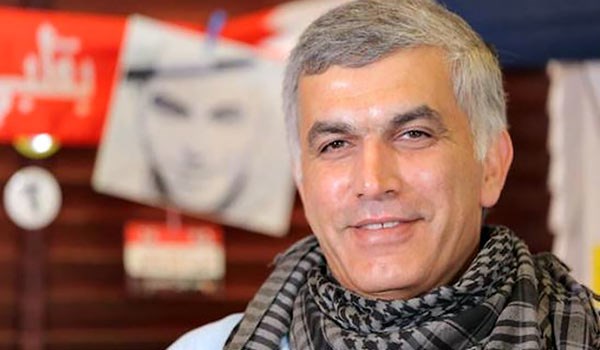
RNA - The International Federation for Human Rights (FIDH) on Tuesday urged the Bahraini government to immediately release Rajab, saying he is a political prisoner who had "done nothing", Al-Jazeera reported.
"Nabeel is not only a human rights defender but also a man of intellectual value. He should not be in jail," Dimitris Christopoulos, President of the Paris-based group, said.
"I expect the Bahraini authorities to understand that violating the fundamental human rights of rights defenders is not the way to proceed," he added, even as he warned that Rajab could face an even longer jail term for a separate case he faces.
Saeed al-Shehabi, leader of the opposition Bahrain Freedom Movement, called the ruling an "implementation of a state policy" and warned that the leadership in the capital, Manama, was determined to block any dissent.
Al-Shehabi said "the decision was not just a gross violation of his human rights and the principles of fair trial".
"This is a political decision. He did not get a fair trial. He was tried for peaceful expression of opinion," he stressed, adding that "95 percent of those in jail" in Bahrain "are there because of peaceful expression of opinion".
Bahrain’s Court of Cassation upheld a two-year jail sentence issued for noted rights campaigner Nabeel Rajab, as he had been found guilty in July of "spreading rumours and untruthful information" against the government.
Rajab has faced two trials, one concerning his criticism of the ruling regime in alleged interviews he has given and statements made to foreign media, and another having to do with his critical tweets.
The court on Monday confirmed the jail term issued against Rajab in the first trial over the charge of "disseminating rumors and false information", a judicial source was quoted as saying.
He could also be served with a separate 15-year sentence over the tweets, in which he has slammed Saudi Arabia and its allies, including Bahrain, for their involvement in the three-year-old war on Yemen.
Rajab, who had been previously jailed in 2012 and 2014, was re-arrested in June 2016 for the tweets, as Manama considers Rajab one of the leaders of the protests which the regime has been facing since 2011.
The Bahrain Center for Human Rights, the rights watchdog which Rajab leads, said the kingdom "routinely misuses the courts" to target activists and opposition members.
"We are very worried about Nabeel's safety and well-being," the organisation added in a statement on Monday.
"Authorities should release him immediately, drop the charges against him and investigate thoroughly his possible ill-treatment in detention," it noted.
UK-based rights body Amnesty International, which has repeatedly taken exception with Manama’s campaign of suppresion, has called Rajab’s trials “farcical”.
Sayed Ahmed Alwadaei, director of the London-based Bahrain Institute for Rights and Democracy (BIRD), stressed that Rajab was denied "a fair trial at every stage".
"This is a slap in the face of free expression and tragically illustrates the corruption of the justice system," Alwadaei said in a statement.
"Bahrain’s rulers are fearful of the truth," he stressed, adding that they have been "emboldened by the unconditional support" of the US and UK, both of which have existing or pending military bases in the tiny Persian Gulf state.
According to BIRD, the upholding of the sentence on Monday means Rajab will stay in jail at least until the end of 2018. Since his 2016 detention, he would have spent two years and six months in prison - six months beyond his sentence.
Scores of people have been killed and hundreds arrested during the crackdown with the help of Saudi and UAE troops.
847/940